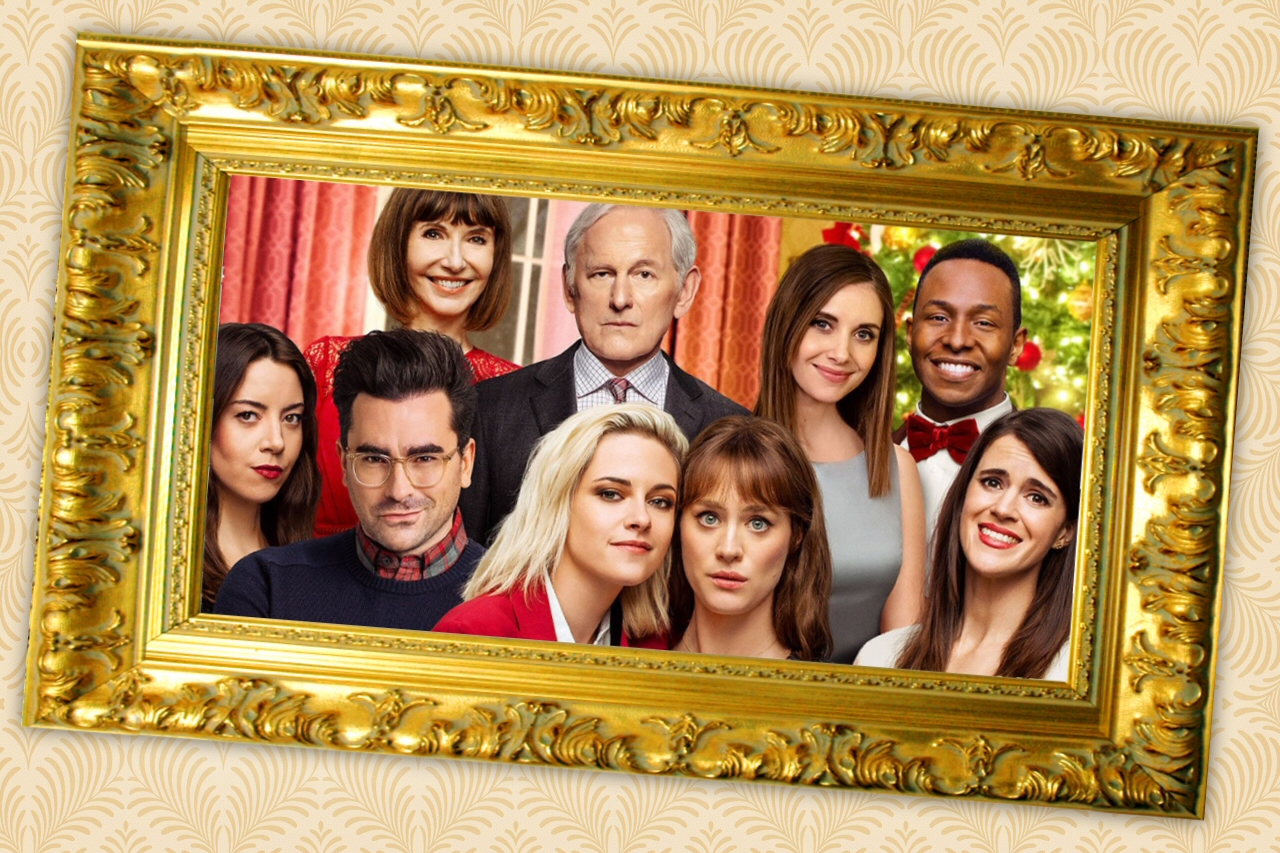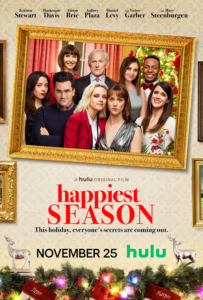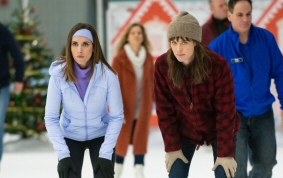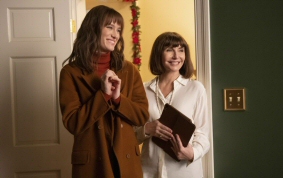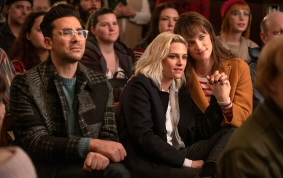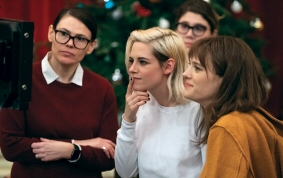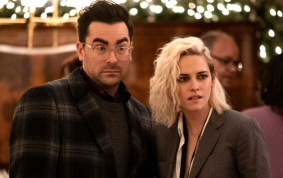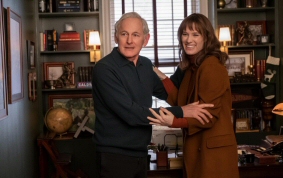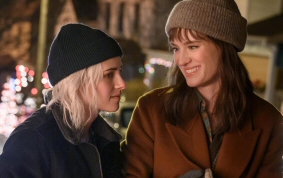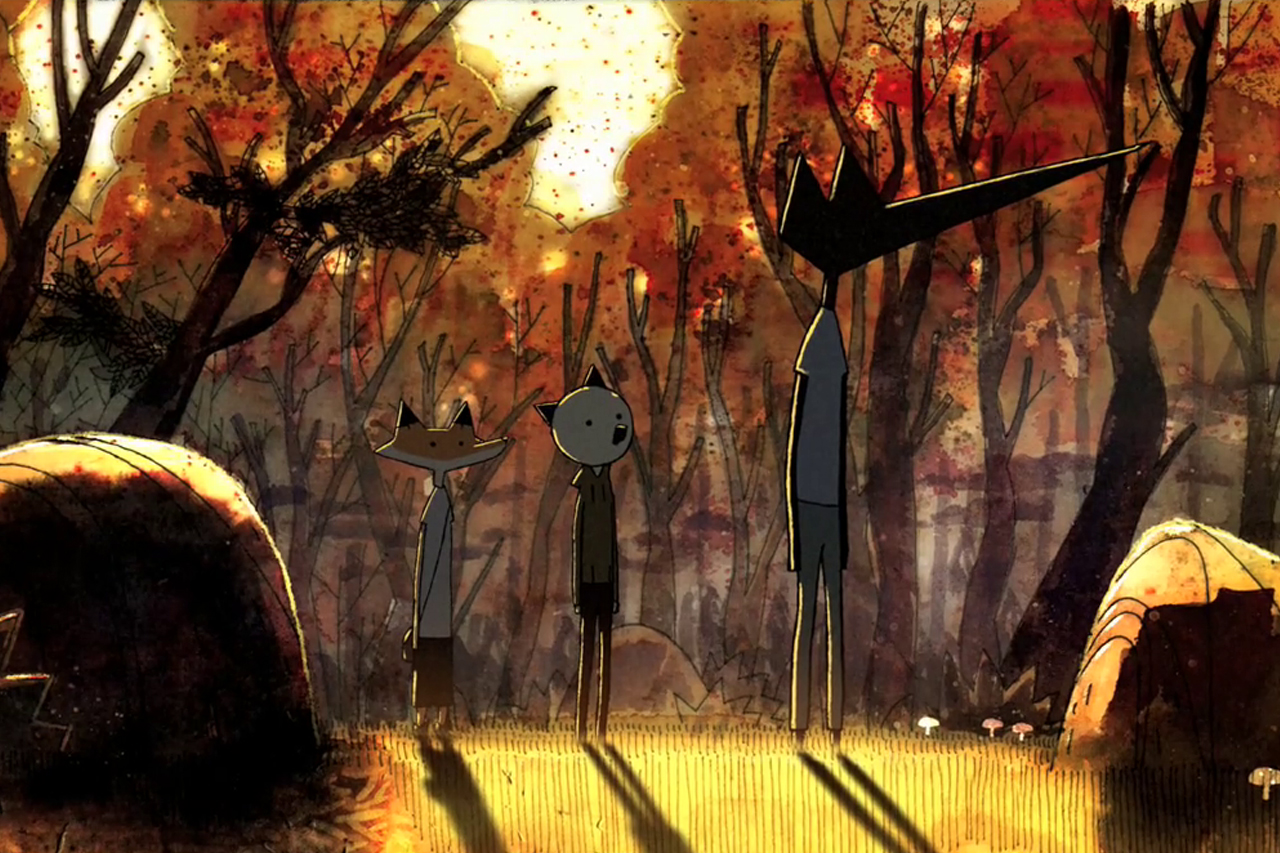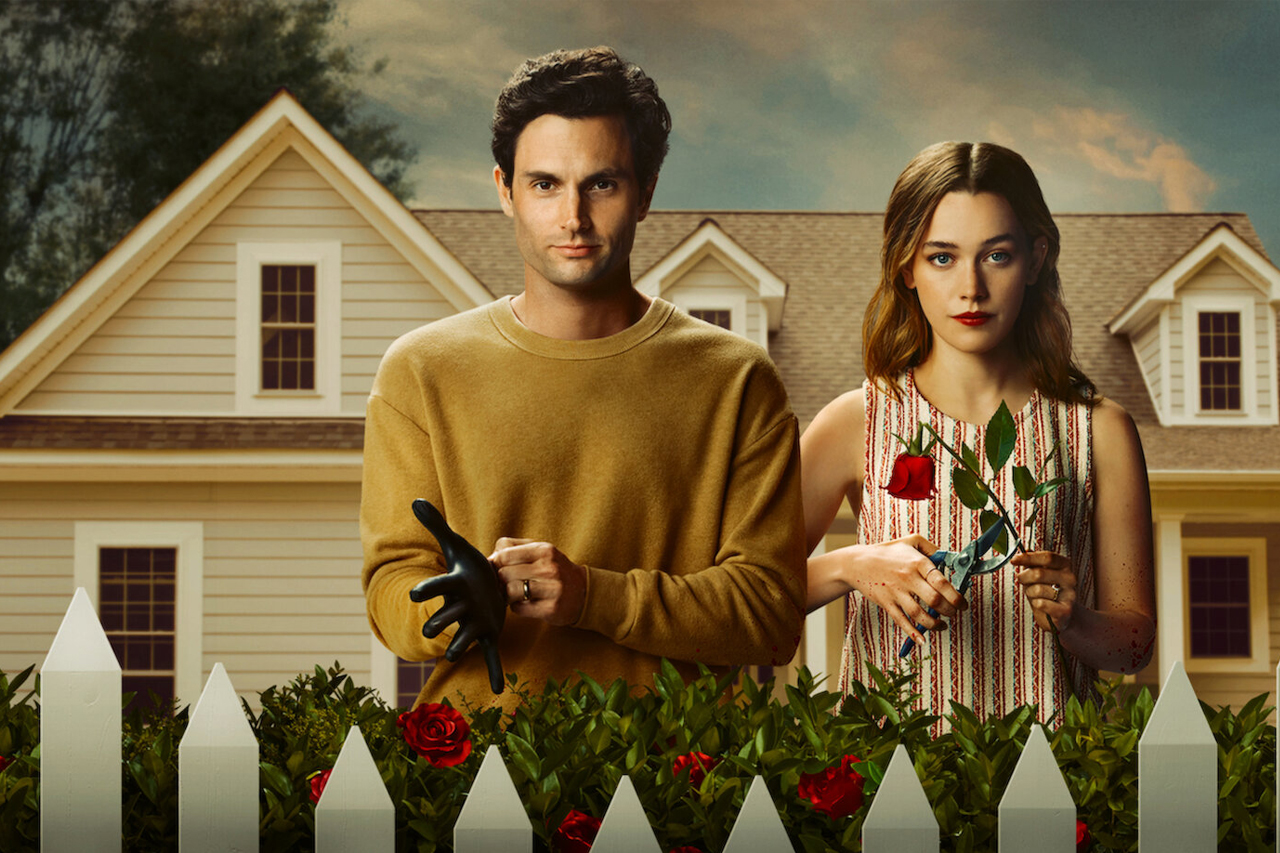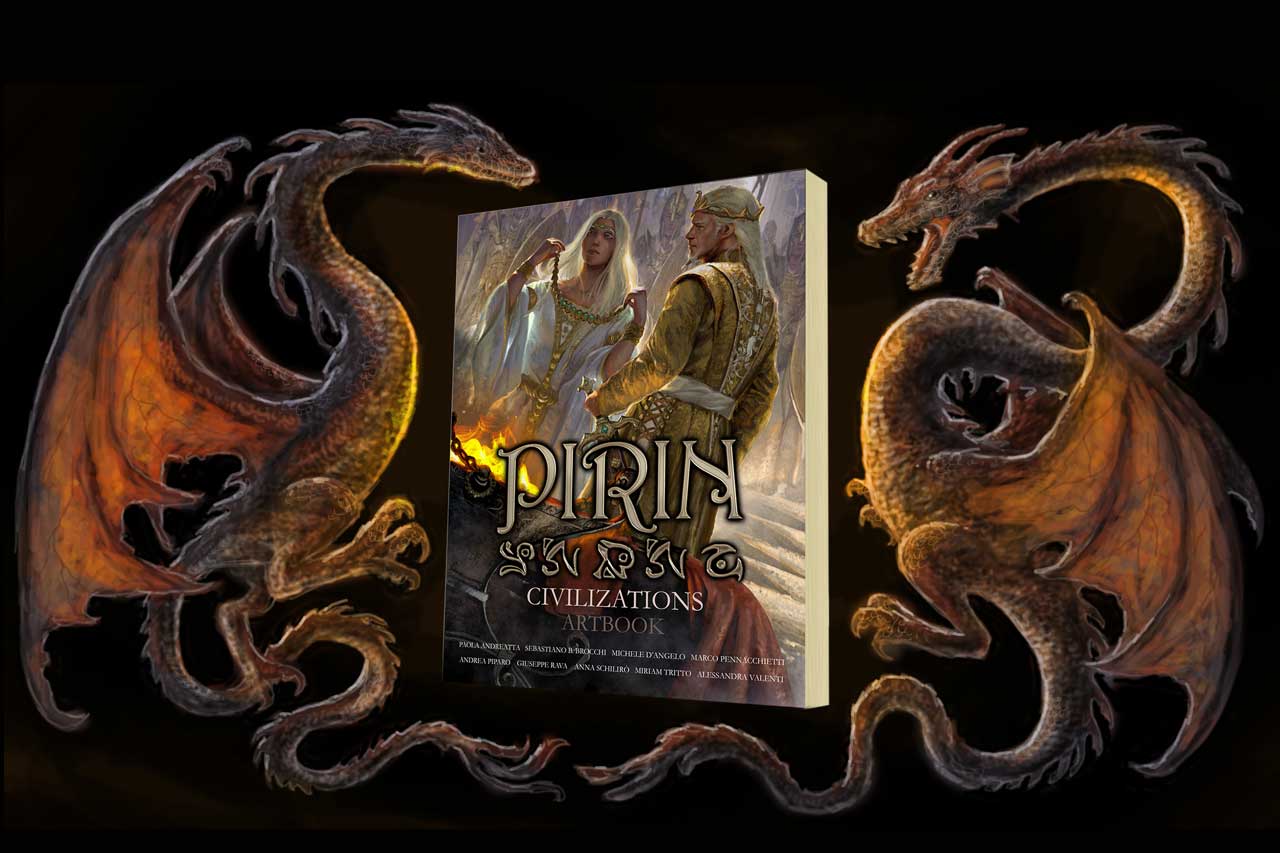Happiest Season is the very first Christmas comedy with two lesbian women protagonists. With Clea DuVall at the helm, released on Hulu and available on Sky in Italy, it has all the necessary qualities to take its rightful place among the Christmas classics.
Happiest Season – Plot
Abby Holland (Kristen Stewart) and Harper Caldwell (Mackenzie Davis) are a happy couple, and ready to spend their Christmas holidays over at the Caldwell’s family home. Or maybe not. Abby is looking forward to meeting her girlfriend’s parents, but she’ll have to face and unforeseen setback: Harper hasn’t come out to them yet. That’s why she’ll agree, although reluctantly, to be introduced as Harper’s orphan friend who would otherwise be spending the holidays alone.
Things already seemed to be doomed to fail. And as is often the case in most notorious comedies, they’ll be hitting even more snags along the way, making the whole situation that much more complicated. One of the snags: Harper’s ex-boyfriend who the Cadwells have invited to the festivities in the hopes that they’ll reconnect.
“Your mother’s going viral!”
Harper’s family is a traditional Northamerican middle-class family. Ted Cadwell (Victor Garber) is an ex town councilmember currently working on an intense electoral campaign to become mayor. His wife, Tipper (Mary Steenburgen), is an elegant and refined woman who is well-aware of keeping up appearances for the sake of other people’s opinions of the family.
Harper also has two sisters, Jane (Mary Holland), the “black sheep” of the family, who somehow managed to escape the family impositions, and Sloane (Alison Brie), a perfect wife and mother, who set aside her career as a lawyer to dedicate all of herself to her family. A choice that is, quite obviously, not accepted by her parents but that, thanks to the way they frame it every time they talk about it, they make it seem like the biggest of achievements.
The heated rivalry between Harper and Sloane is really quite obvious right from the start. Each in their own way, they both keep trying to get the ideal title of “favourite daughter” in the family. They’re literally terrified by the idea of losing their parents’ affection if they shall ever fail in reaching their expected standards. That’s why most of their life choices are influenced by such fear.
The electoral campaign, which is already putting the Cadwells under the public spotlight and exposes them to external judgement, will make the precarious family balance even shakier. And the challenge that Harper and Abby have to face, coming out as a couple to a family that doesn’t really understand “alternative” lifestyles, will prove to be even more difficult than they expect.
“Abby, what are you doing in the closet?”
In the introduction to the movie, we meet Harper and Abby and see their everyday life. In Pittsburgh, they’re an openly homosexual couple and their friends know them as such. Harper is cheerful, easy-going and when she convinces Abby to climb on a nearby rooftop to get a better view of the city’s Christmas lights, she comes across as the more extroverted of the two. Her spontaneity is such that, in the joy of the moment, she invites Abby to spend Christmas back at her family home. An invitation she’ll end up regretting for obvious reasons.
As soon as she steps back into her childhood home, Harper becomes a completely different person. In no time at all, she goes back to being a scared and insecure girl. Her behaviour changes so abruptly that Abby will start thinking she’s not sure she actually knows who Harper really is.
Hiding her identity, especially when it comes to her family, becomes such a heart-wrenching task that Harper gets to a point where she starts doubting herself and her feelings for Abby. For her part, Abby won’t be able to help but think that Harper doesn’t really love her, and she’ll reveal the fears and insecurities that come with being in a relationship that can’t really be lived out in the open.
“So what, her parents are believing their straight daughter brought home her lesbian friend for Christmas?”
Happiest Season has been advertised as the first-ever Christmas movie where the plot completely revolves around the lives of two lesbian women. A quick search shows that several Christmas movies focused around queer characters are set to come out this year.
Such a quantity of such new movies indicates that the cinema industry is starting to understand the value of representation of queer stories and characters. For cinema lovers, it’s quite evident that there is a narrative gap when it comes to a community of people that isn’t really a “minority”, even though this term is still the most common one used to describe it. Nevertheless, we must recognise the current effort of trying to fill this gap (yay!).
Then again, viewers are quite evidently interested in these stories. After just twenty days from its release, Happiest Season can already boast a box office return of over a million dollars and, if Covid hadn’t been an issue, this movie would have most likely become the first-ever big-budget LGBTQ+ Christmas movie.
Unfortunately, we also need to be prepared for that particular brand of low-level whining that representation usually carries with it. LGBTQ+ characters are starting to be included more or less everywhere, thus creating a phenomenon that, although it’s only just beginning, already seems to have tired a section of viewers who can’t seem to be able to understand its importance.
“Everybody’s story is different. There’s your version, and my version, and everything in between.”
Some might even already be tired of having to see another coming out story. And yet, until coming out is still as inevitable of an act as it is dreaded, I believe it’s important to keep promoting stories that could help give others in the same situation the courage to do it.
Happiest Season can boast a rainbow crew that leaves very little room for mistakes. In fact, even if representation is essential, so is the way through which it is achieved. Including an LGBTQ+ inclusive cast is a choice that easily helps the industry stay on the right track.
It’s essential that the creators of such stories are also part of the queer community so that they can avoid delivering a trite and misleading portrayal of reality built on prejudice and mistaken pre-conceptions.
Moreover, stories about coming out aren’t only useful for those who are coming out themselves, but also for the people around them. Happiest Season, in particular, clearly shows how damaging it is for one’s self-esteem and personal and social growth to hide their identity and how many sacrifices are really necessary when you can’t express who you are. This knowledge could help welcome coming outs with more humanity in real life too.
“Did you know that you’re standing in a country club that didn’t let women have their own memberships until the early 2000s?”
This review wants to avoid any kind of spoilers, which is why we don’t really have a valid reason to be talking about John (Dan Levy), Abby’s best friend. However, when we take into consideration that John might actually be the favourite character for anyone who’s already watched the movie, I couldn’t possibly not mention him.
John is a gay man who works as an editor for young aspiring writers. An extremely cultured and – no matter what – extremely gay (and I mean this as a compliment!) man. His role, throughout the movie, is to help Abby face the complicated situation she’s found herself in. Despite being a very opinionated person, especially against patriarchy, he’s also sensitive enough to be able to understand when it is time for him to stay quiet and listen. John finds himself in the most suitable position to be able to comprehend the dynamics of the situation and to walk in both Abby and Harper’s shoes.
Thanks to John, there are three coming out stories for the movie to portray, each characterised by unique and unrepeatable circumstances.
Through John, the audience is introduced to the concept of heteronormativity and how it ends up influencing even queer relationships. Heteronormativity is the assumption that heterosexuality is the only right sexual orientation. The rules and behaviours that are usually followed in a heterosexual couple fall under this spectrum. They are rules that, more often than not, are based on patriarchal and sexist principles. Because they are viewed as the norm, LGBTQ+ couples sometimes are driven to adapt to these rules, trying to find a sort of normalcy that can be universally accepted. An example of this is Abby’s wish to not only marry Harper but to go so far as to ask her father for her hand in marriage.
“I am not hiding you! I am hiding me!”
Harper plans to disclose her relationships with Abby at the end of the Christmas celebrations when all events of her father’s electoral campaign will also be ending.
However, the lies and subterfuge she’ll be obligated to engage in to keep her secret hidden for the whole time will put her in a very complicated position. Going so far as pushing Abby, and possibly also parts of the audience, to wonder why she won’t just come out and tell the truth.
The reason why coming out is so terrifying (as perfectly explained by John) is that revealing one’s sexual orientation can also mean, in a few words, having to start a new life. It means going through a door that, once shut, will disappear completely, taking with it aspects of your world that will never come back. Coming out could mean losing one’s parents, one’s friends, it could mean being fired from a job or even become homeless. That’s why it’s important for someone who’s considering coming out, to be ready to face all the risks that come with it.
That’s also why being outed by someone else is always a violent act. Both because the person who outs someone else usually does it in a denigratory way, and because it takes away the individual’s freedom to deal with coming out in the most comfortable conditions possible.
However, in the movie, there isn’t just Harper’s secret, but also another one that affects one of her sisters. The existence of this second mystery that persists at the same time with the first and remains hidden from everyone right until the end is a demonstration that not feeling safe in that family environment might be one of the things that prevent Harper from wanting to come out.
How will the Cadwells react when they find out that their daughters are so scared of losing their affection that they’ll go so far as to lie to them?
Final thoughts
Happiest Season stages the dynamics that a lesbian couple in the closet has to face during the Christmas festivities in the family environment. And it does so in the right way. The existence of a secret and the need to hide it is a great starting point to create a comical story. However, Clea DuVall talks about events that she, and almost every other queer person, has had to live at least once in her life, making this movie much more than a simple romantic comedy that tries to entertain its audience.
Between one laugh and the next, in fact, the underlying themes might be some of the closest for the LGBTQ+ community and they’re far from light or carefree. We laugh, almost to the point of tears, but at the same time, we can perfectly perceive the dissatisfaction that queer people feel inside a heteronormative environment where they’re obligated to hide. A world where, despite everything, they’re not the only ones wearing a mask, seen the hypocrisy that pervades it.
One almost wonders if it is possible to create an LGBTQ+ movie without having to shed bitter tears.
In my opinion, Happiest Season is a fantastic movie both for queer people, who finally get to watch a Christmas movie where they’re represented, and also for those who are not queer and who don’t really know much about what it means. They’ll definitely learn something.
Happiest Season is definitely a witty and well-made movie. However, we would have loved being able to see a carefree LGBTQ+ Christmas romcom, just for a change. Maybe next time.
